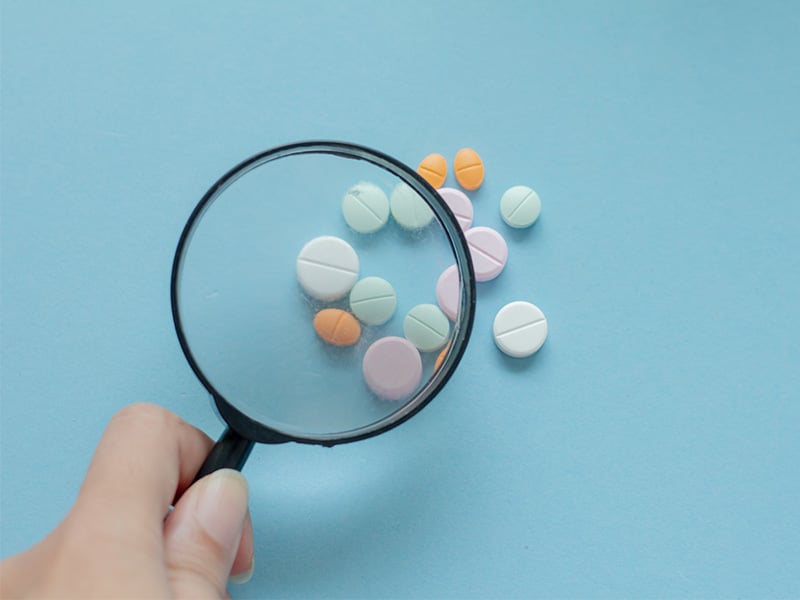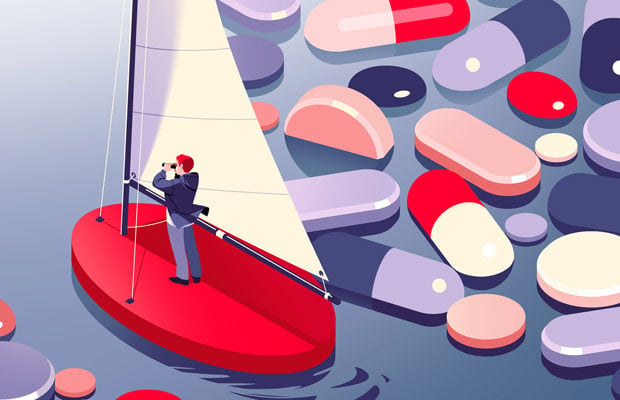Statins must be one of the most controversial topics of modern medicine. They save lives by reducing your risk of heart attack and stroke. But as many as a third of people taking them complain of side effects.
For the first time, a clinical trial has found that 90 per cent of the side effects people reported when they took a statin were experienced when they took a daily placebo pill instead.
Sometimes just knowing how your mind works can change your body’s reaction.
This is crucial research that we’ve helped to fund because evidence shows that statins reduce death rates. If someone stops taking their statin, their risk of death from heart attack or stroke is higher than it needs to be. If people know that their symptoms are not really caused by statins, and take their statin as a result, then it could save people’s lives.
Professor Darrel Francis, Professor of Cardiology at the National Heart and Lung Institute at Imperial College London, says: “Statins are extremely powerful in preventing heart disease. But a lot of people aren’t taking statins because of their worries about side effects.
"Some people experience a reaction, and it may be real, without it being caused by the chemical effect of the statin. If I’m looking forward to a curry, thinking about it will make my mouth water. It’s not the food that’s making my mouth water, it’s my mind.
"Also, you might be unlucky and happen to get ill when you start taking a statin. So you stop taking it and your symptoms go away – but they could have gone away anyway. Even if you try a second time, your body and mind could have linked the two, so you expect to feel ill when you take the statin, and you do.”
What did the research reveal?
Professor Francis and his team at Imperial College London recruited 60 adults who had recently stopped taking their statins. The study was helped by Heart Matters – although there was initially a shortage of participants, a Heart Matters feature about the trial led to more volunteers coming forward so that the researchers got all the participants they needed .
In the trial, called SAMSON, each participant was given a set of 12 bottles, one for each month. in four of the 12 months they were given a statin (atorvastatin), in four months they were given an identical dummy pill, and for four months they were given an empty bottle with no pill to take. A computer randomly decided which of the bottles they would take each month. Each day for a year, the participant recorded whether they’ve taken the pill and how they feel (on a scale of 1 to 100).
At the end of the study, the researchers found that people were just as likely to need to temporarily stop taking their placebo tablets due to intolerable side effects as they were with statins. They also found that people felt better when they were not taking any form of tablet.
The results suggest that these side effects are mostly caused by the “nocebo” effect - where people experience side effects from a therapy because of a negative association with it, rather than the actual biological effect of the drug.
Professor Francis explains: “This research showed that effects were almost identical between the statin tablets and the placebo tablets. This means that these very real side effects were the result of knowing that you are taking a tablet, not the result of the statin inside the tablet. It did also show that these effects are very real, and reproducible under scientific, experimental conditions with careful daily documentation.”
What does this mean for me?
The results of this research could have big implications. Different studies estimate that between half and three-quarters of people prescribed a statin stop taking it within two years, with symptoms such as muscle pain being the most common reason. And many more people decide not to take them in the first place because of concerns about side effects.
Professor Sir Nilesh Samani, BHF Medical Director, says “The beauty of this study is that it’s personalised. For the first time, patients were able to see for themselves that statins did not cause their side effects but the physical act of taking a pill did. These results undeniably show that statins are not responsible for many of the side effects attributed to them. Decades of evidence have proven that statins save lives and they should be the first port of call for individuals at high risk of heart attack and stroke.
For some patients, this study will offer reassurance that the statin is not causing their symptoms, and it will make it easier to help the minority of people who do suffer real side effects.
This study is particularly useful because it was based on people who had stopped taking their statin because of apparent side effects. And because they were given their own results at the end of the year, they could see for themselves that (in most cases) they were not actually caused by the statin.
"If the symptoms from the placebo are like those from the statin, it shows that the effect is because they know they’re taking a tablet,” Professor Francis explains. “Then we can advise the patients on what to do. Sometimes just knowing how your mind works can change your body’s reaction .
"If it does show you’re getting genuine side effects, then alternatives to statins can be explored. Or you might not have any symptoms at all. This is a really personalised medicine trial.”
"My vision is that, in future, once someone says they’re getting bad side effects, they can be given the SAMSON kit and they can get the answers for themselves,” says Professor Francis.
 The patient's view
The patient's view
John Chapple, from Acton, London, was prescribed a statin in 2012 after quadruple bypass surgery, but he experienced aches and pains. After trying a different statin, he stopped taking it. In 2016, he had a heart attack. “They asked me why I wasn’t taking a statin. When I explained, they told me about the SAMSON trial, and I was happy to take part.”
John got his results in March 2018 – and they showed there was no difference in how he felt in the months when he was taking a statin versus a dummy pill. He says: “That convinced me that whatever happened six years ago isn’t a problem now. I’m now taking a statin again and I can’t detect any difference to when I’m not taking it.”
John, 75, is still working as a beekeeper – his second career since retiring from his job as an engineer. “Psychologically it’s nice to know that the statin is reducing my cholesterol and lowering my risk of another heart attack. I’m trying to do everything I can to stay alive, active and a useful member of society.”
I have learned something from the trial too – that you shouldn’t go into things with your mind already made up. Lots of people say you mustn’t take statins – you will have aches and all sorts of things. But that might have nothing to do with the statins.”
What to read next...







 The patient's view
The patient's view

